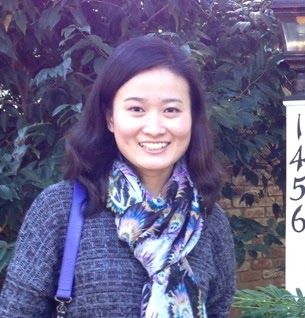 |
ITCM of TecNM, Mexico |
|
 |
Michigan State University |
|
 |
Ting HuQueen's University, Canada |
Website |
- Laura Cruz Reyes
Abstract:Innovating Multiobjective Optimization with Machine Learning
Machine learning, a branch of artificial intelligence, utilizes data to identify patterns and create predictive models. Today, machine learning is redefining the approach to process optimization, unlocking new possibilities for improvement. Traditionally, optimization relied on mathematical models and specific algorithms such as heuristics and metaheuristics to solve problems efficiently. However, the integration of machine learning has brought about a significant shift in this perspective. This talk will explore how machine learning has transformed optimization esearch and is continuously doing so by offering a more flexible approach to adapt to problem changes. This innovation has enabled the dynamic, real-time optimization of problems at previously unattainable scales and complexities. Specifically, some research strategies that have been proposed, as well as future possibilities and examples of real-world applications, will be presented. The challenges of this intelligent optimization approach will be discussed, which seeks to significantly integrate machine learning into process optimization to enhance system efficiency and performance.
Short bio:
Laura Cruz-Reyes holds a Ph.D. in Computer Science, two master's degrees in Computer Science and Information Systems, and a bachelor's egree in Chemical Engineering in Production. She is a level III National System of Researchers (SNI) member under CONAHCYT and a full-time Computer Science professor at the Instituto Tecnológico de Ciudad Madero. She leads the Intelligent Optimization research group and three research networks and has established postgraduate programs and the National Laboratory of Information Technologies. Internationally, she collaborates with the University of Cádiz and is Vice President of the Eurekas Community. Her research focuses on solving complex optimization problems using AI and operations research, with interests in metaheuristics, machine learning, fuzzy logic, multi-criteria decision-making, and logistics. She is active in science dissemination, having served as a guest editor and reviewer for journals. She was editor-in-chief of the Komputer Sapiens journal, achieving its inclusion in the CONAHCYT index. - Kalyanmoy Deb
Evolutionary Multi-objective Optimization for Practicalities
Abstract:
Evolutionary multi-objective optimization (EMO) algorithms are capable of finding multiple trade-off optimal solutions in a single application. This aspect alone has made them attractive for handling multiple conflicting objectives for the past three decades. EMO algorithms are adapted for handling various other practicalities, such as robustness, reliability, hierarchy, expensive evaluation functions, etc. In this talk, we discuss two practicalities -- finding regularized trade-off solutions with certain common properties and finding intermediate transitional solutions from current to target -- proposed recently using updated EMO algorithms. Results will be shown on a number of test and engineering problems.
Short bio:
Kalyanmoy Deb is University Distinguished Professor and Koenig Endowed Chair Professor at Department of Electrical and Computer Engineering in Michigan State University, USA. His research interests are in evolutionary optimization and their application in multi-criterion optimization, modeling, and machine learning. He was awarded IEEE Evolutionary Computation Pioneer Award for his sustained work in EMO, Infosys Prize, TWAS Prize in Engineering Sciences, CajAstur Mamdani Prize, Distinguished Alumni Award from IIT Kharagpur, Edgeworth-Pareto award, Bhatnagar Prize in Engineering Sciences, and Bessel Research award from Germany. He is fellow of ACM, IEEE, and ASME. He has published over 620 research papers with Google Scholar citation of over 206,000 with h-index 141. More information about his research contribution can be found from https://www.coin-lab.org.
Interview:
Interview with Kalyanmoy Deb from 2023 - Ting Hu
Simplicity Bias and Neutrality in Genetic Programming
Abstract:
Nature often favors simple solutions, as evidenced by the prevalence of symmetrical and simple structures in the natural world. But can we quantify this observation? If so, to what extent? What evolutionary explanations might account for this phenomenon? In this talk, we explore these questions within the context of genetic programming. We propose an explanation for the simplicity bias observed in genetic programming, using the concepts of redundancy and neutrality in the genotype-to-phenotype mapping.
Short bio:
Dr. Ting Hu is an Associate Professor at the School of Computing, Queen's University in Kingston, Canada. Her research focuses on explainable AI, evolutionary computing, and machine learning applications in biomedicine. Ting serves as an Area Editor of the journal Genetic Programming and Evolvable Machines, as well as an Associate Editor of the journal Neurocomputing. She has served on multiple occasions as the program co-chair for prominent evolutionary computing conferences such as the ACM Genetic and Evolutionary Computation Conference (GECCO) and the European Conference on Genetic Programming (EuroGP).

